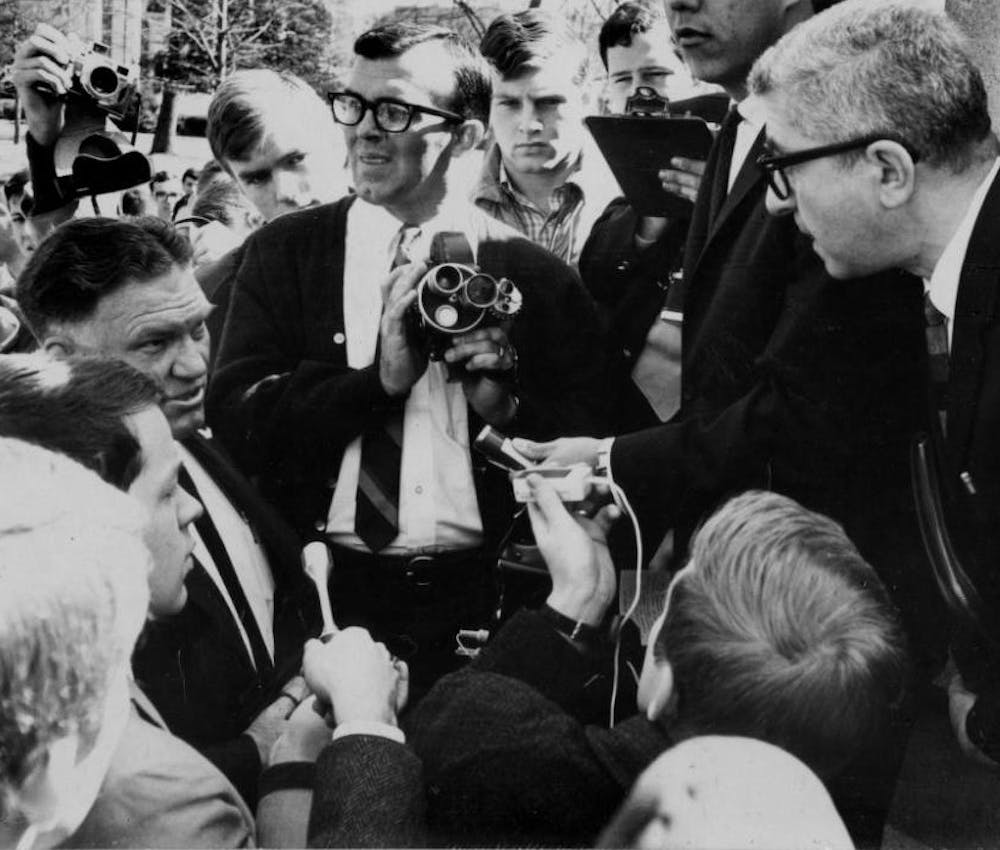This speaker ban, officially known as the Act to Regulate Visiting Speakers, was debated for less than an hour on the last day of the legislative session.
“It was a legislation that originated without warning, without notice, in the General Assembly in the summer of 1963,” said Michael Hill, supervisor of historical research for the state Office of Archives and History. “Essentially, it was to prohibit members of the Communist Party, or persons known to be affiliated with the Communist Party, from speaking on campus.”
Ferrel Guillory, a professor in the School of Media and Journalism, said the largely white, rural legislature of the time reacted to what it saw as an association between activists and communists.
Students were outraged to see the ban’s challenge to the First Amendment, said Jock Lauterer, a senior lecturer in the journalism school and then-chief photographer for The Daily Tar Heel. He said many saw it as an attack on the University.
“We were astonished that the lawmakers in Raleigh would see fit to pass such an egregious and morally corrupt, as we saw it, law,” he said.
Then-Student Body President Paul Dickson and his successor Bob Spearman sought help from other passionate student leaders and attorneys, Hill said. Robert Dickson, Paul’s younger brother, said Paul was a supporter of the First Amendment — not communism.
“He didn’t think the legislature ought to be telling the students who they could listen to,” Robert Dickson said.
Faculty and other system officials like Bill Friday, UNC-system president from 1956 to 1986, strongly opposed the Speaker Ban.



